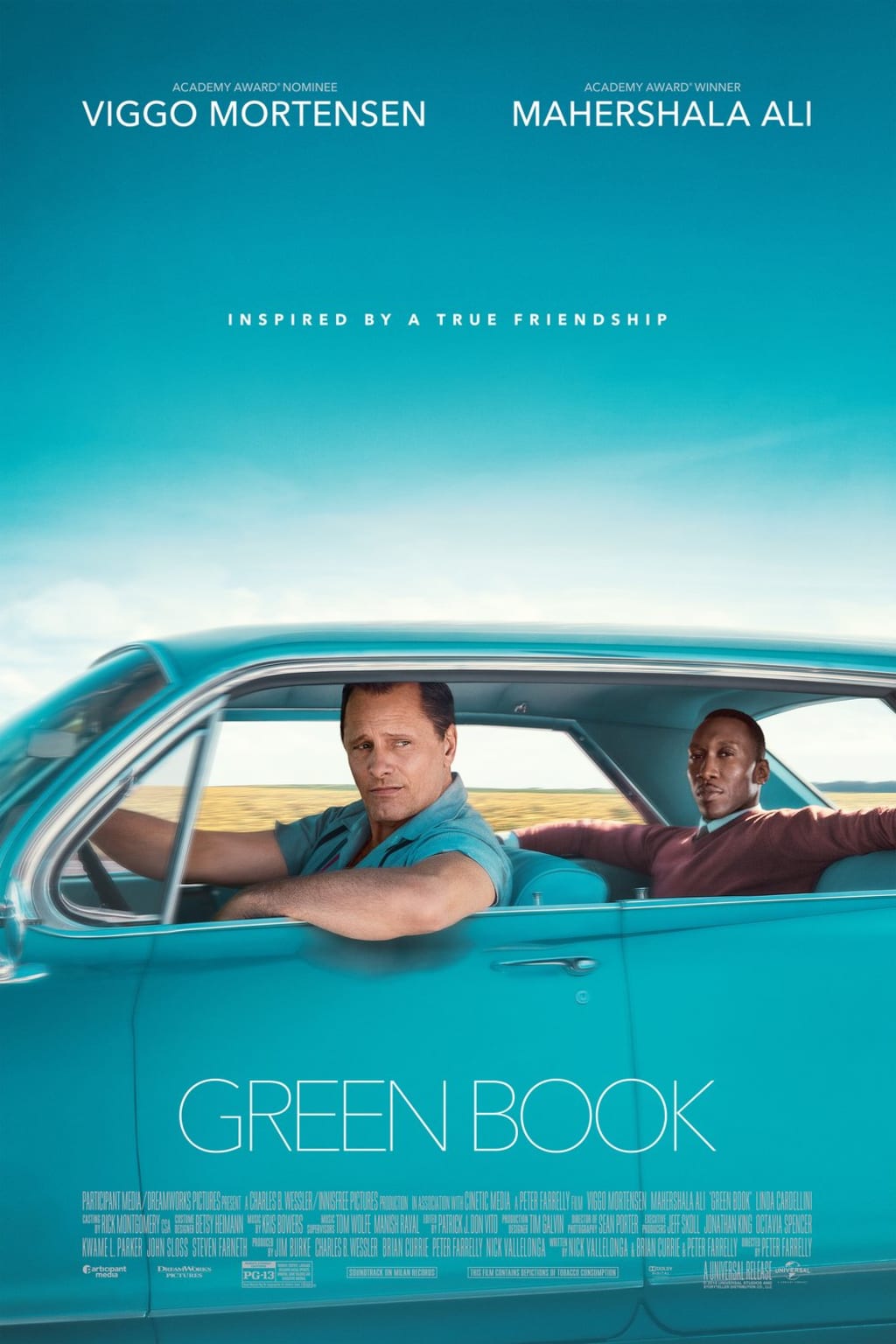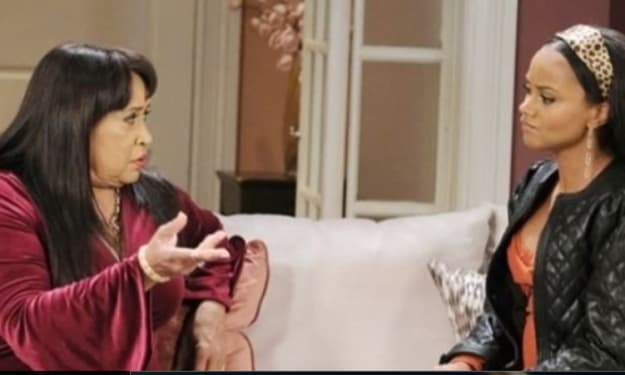Not So Greener Pastures
Review of 'Green Book'

I feel bad for Mahershala Ali. The man is a talented actor with range and a charisma about him, which has gained him two Oscars for Best Supporting Actor, as well as the honor of being in two Best Picture Oscar winning films. However, both of the Best Picture winners will forever be overshadowed by controversy. The first Best Picture is Moonlight, which momentarily had its thunder stolen from it when La La Land was accidentally announced as the winner before being corrected. The second Best Picture is this film, Green Book, which many would argue didn’t even deserve to win at all! In fact, some critics even claim it’s the worst Best Picture winner since Crash, and considering how that movie also suffered from an disorganized message about race relations, that’s a fitting comparison.
Set in 1962, Green Book tells the story of classical and jazz pianist Don Shirley (played by Ali), and his driver/bodyguard, Tony Vallelonga (played by Viggo Mortensen), as they travel by car throughout the American Deep South. The title of the movie is based upon “green books,” travel guides written by Victor Hugo Green, which would list motels and restaurants that were tolerant of African-Americans. The film was co-written and directed by Peter Farrelly. And frankly, this movie is as tone deaf as can be! We’ll get back to that later.
Tony Vallelonga is a bouncer for the Copacabana nightclub, until he is left jobless when the club has to go under renovations. Tony has a habit of going through money as quickly as he earns it, so he makes some cash on the side by winning eating contests. Needing a more steady stream of income, Tony takes up an offer to drive Don Shirley around America, and also act as a bodyguard, should anything turn, well, south for Shirley in the more racist areas. The on-going joke is that the duo are from radically different cultural backgrounds, not just in terms of ethnicity, but of class. Linda Cardellini rounds out the cast as Tony’s wife, Dolores. Depending on which fandom you support more, you either know Cardellini best as Velma from the live action Scooby-Doo movies, or as Hawkeye’s wife from Avengers: Age of Ultron.
Gee, where to begin with this one? Okay, here’s one of the few nice things I can say, and it’s that the performances are top notch. Ali plays Shirley as being calm, cool, and collective, but he has a quiet pain bubbling underneath the surface. His best scene is when he snaps and admits that he’s too black to be accepted by white America, but he’s not black enough to be accepted by African-American culture. It’s a great scene, and it was no doubt the one that won Ali the Oscar. However, after the line is uttered, it’s never really explored ever again. And it doesn’t help that this scene happens near the beginning of the movie’s third act! A major moment like this should have happened in the middle of the movie, and then become the theme of the story. Instead, it’s just treated like something that the character was required to say, and then they quickly move on to the next scene as if it doesn’t matter. Mortensen is also in full “doing stuff that usually wins you an Oscar” mode. He gained weight for the role, and speaks in a (sometimes comedically) thick New York accent. For most of the time, he’s being passive-aggressive with everyone that he interacts with, when he’s not stuffing his face with food, like this one scene where he attempts to eat an entire pizza pie by folding it like a taco, which would have impressed me, except he only takes one bite before being interrupted. It’s amazing that Mortensen has such a range that he can play a Middle Earth Ranger who speaks Elvish in one movie, then plays a mobster who speaks Russian in another movie, and then plays a New Yorker who speaks Italian in this movie.
Alrighty, we mentioned everything that’s good about this movie. Now for the bad. As I said, this movie is tone deaf as can be! Case in point, there’s a scene where Tony and Don are driving through Kentucky, so of course Tony wants to eat some authentic Kentucky Fried Chicken. Don, however, has never eaten fried chicken before, and Tony proclaims that is impossible, because “this is the food of your people.” So naturally, we have a scene in which a white man pressures a black man to eat fried chicken. Yes, it comes across as awkward and unsettling as it sounds. I’d like to take a moment to compare this scene to a similar scene in another period piece movie, Brooklyn. In that movie, Saoirse Ronan’s Irish immigrant character is about to meet the family of her Italian-American boyfriend. Since Saoirse’s character has never eaten spaghetti before, her boarder house roommates teach her the fine art twirling spaghetti with a fork and spoon, until she’s pro at it, which then impresses her boyfriend’s family during dinner. It’s cute moment, played mostly for laughs, and it’s a simple way to get across the cultural differences of the romantic duo. My point is, that scene wouldn’t be as charming if instead, the Italian family served raw potatoes to Saoirse’s character, practically shoving them in her face, while proclaiming “come on, this is the food of your people.” So yeah, it wouldn’t work in that movie, and it certainly doesn’t work in this movie.
An ongoing plot line of the movie is that most southerners say backhanded comments about Don, usually within earshot of Tony. While Tony does try to defend Don by talking back to said southerners, it isn’t until after the southerners insult Tony that his short temper is triggered, and he physically assaults the southerners. Tony isn’t attacking them because they are disrespecting his friend and employer, he’s attacking them because they are disrespecting him. And the friendship between Don and Tony feels incredibly forced. At no point do you believe that these two would take a liking to each other. Tony only defends Don if he himself is directly affected, and in return, Don teaches Tony how to write more romantic sounded love letters to Dolores. Yeah, that’s not exactly a fair trade.
The supposed morale of this story is the most head scratching-ly confusing aspect of the movie. “Hey black people, it’s okay if you feel you don’t belong to any particular culture, so long as you have one white friend and teach him how to be more refined.” “Oh, and white people, it’s okay to be casually racist, so long as you mean well in the end.” It’s quite jarring to see a movie like this being made today. It feels like a movie that was made in the 1990s and was trapped in a vault somewhere for twenty years, only to resurface today. The best way to describe it would be to call it a type of role reversal version of Driving Miss Daisy.
The biggest conversary for this movie would be the fact it won Best Picture (and Best Original Screenplay). Just let it sink in that Peter Farrelly, one half of the brother duo that gave us such movies as Dumb and Dumber and There’s Something About Mary is now an Oscar winner! Not only that, but how can a movie this mediocre be awarded the top prize of Best Picture? The answer is that, when it gets right down to it, the Oscars are just as political as this movie is tone deaf. Of the movies nominated for Best Picture, Bohemian Rhapsody wasn’t going to win due to its ties to Bryan Singer, A Star Is Born wasn’t going to win due to being the third remake of a classic movie, Black Klansman wasn’t going to win due to being too “anti-white” in some critics’ eyes, Black Panther wasn’t going to win due to being a comic book movie, and Roma wasn’t going to win due to being a Netflix movie. That only left Green Book as something that the Oscars would historically give a Best Picture award to, as it’s a movie that romanticizes a bygone era and preaches a theme of unity between people of different class and races; aspects that elderly Oscar voters love to eat up.
But you can’t mention Green Book winning Best Picture without bringing up Steven Spielberg. If you haven’t been following entertainment news, Spielberg has stated multiple times that he's not fond of Netflix movies getting nominated for or winning Oscars. He believes that they should only qualify for Emmy Awards, as streaming services are mostly an offshoot of television. However, Netflix did release Roma in Los Angeles and New York located theaters for a few weeks, which is all it takes to qualify for Oscars. Well, Spielberg went out of his way to sabotage any chances of Roma winning major awards, by campaigning hard for Green Book. This was also a huge conflict of interest, considering that the movie was produced by Dreamworks Pictures, a company under Spielberg’s own Amblin Partners. There’s also rumors that Spielberg was making statements like “This is the best buddy movie and on screen chemistry since Butch Cassidy and the Sundance Kid!” Yeah, no it’s not. First of all, Butch and Sundance came across as legit buddies who liked one another, and no one can touch the on screen chemistry that Paul Newman and Robert Redford had. So in the end, you can thank Spielberg (legendary director though he may be) for being an old man who yells at clouds for this movie winning Best Picture.
Overall, I give Green Book a disappointing two out of five stars. It’s not worth your time, unless you’re morbidly curious to see what it’s all about. Wait until it’s on basic or premium cable and watch it then, or rent it through Redbox if you must (don’t pay more than $2). As my catchphrase goes, when it came to choosing Best Picture, the Academy chose poorly. That concludes this fanpicked review. And remember, when it comes to the media that you consume, be like Indiana Jones, and chose wisely.
Short Version
Pros:
- Great performances by Viggo Mortensen and Mahershala Ali.
Cons:
- Racially insensitive and tone deaf by today’s standards.
Verdict: ** (two out of five stars)
About the Creator
Fanpicked Media
Watcher and critic of movies, television, and streaming media. Helping you pick the media that's best for your consumption.






Comments
There are no comments for this story
Be the first to respond and start the conversation.